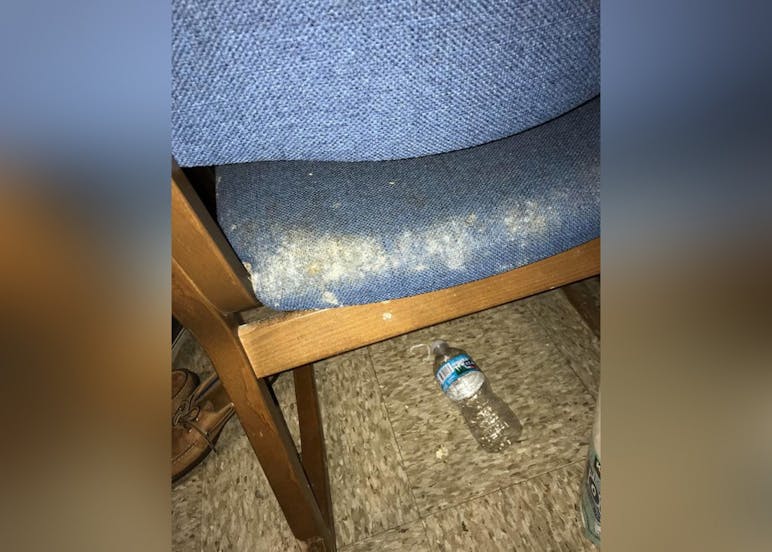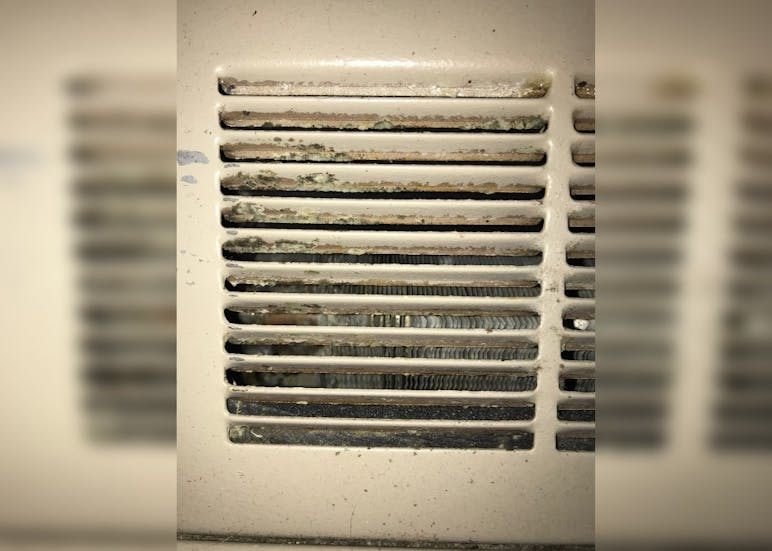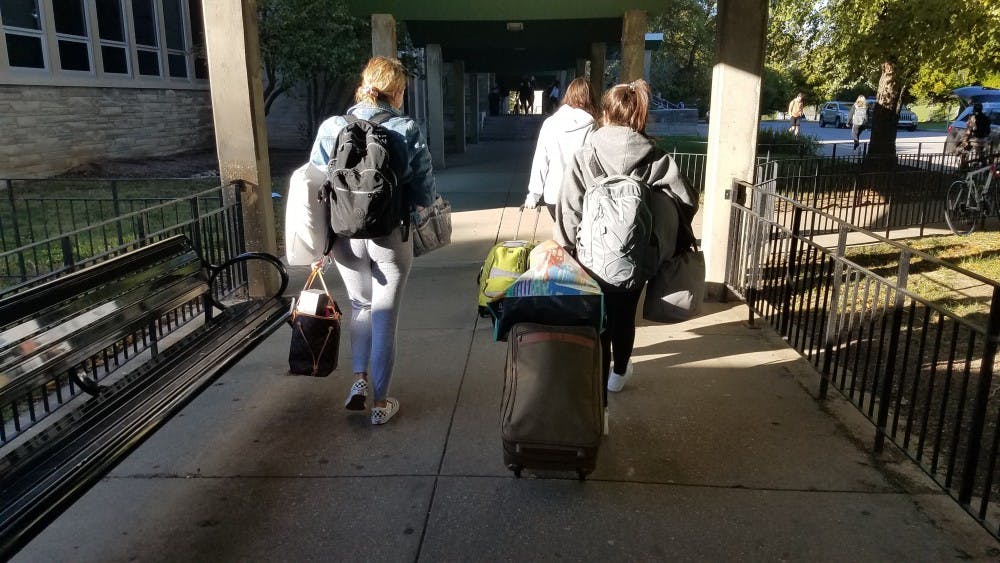A lawsuit filed against the Trustees of Indiana University regarding the residence hall mold issues moved to federal court Friday. The case, originally filed through the Circuit Court of Monroe County on Oct. 17, was transferred to the United States District Court for the Southern District of Indiana.
The party who initiated legal action includes seven named students from Foster and McNutt quads, and because of its potential class-action nature, an undetermined number of students are also involved.
Although students are the official plaintiffs, parents have been a driving force in mold complaints.
Allegations include breaches of the residential contract and implied provision of livable conditions as well as a request for the court to declare residents’ rights and the University’s responsibilities.
According to court documents, families are taking these steps to obtain more information about the official mold remediation that began Oct. 15. and is ongoing. They also wish for the University’s current method of remediation to be stopped because they allege it is ineffective. The families also call for reimbursement for damages allegedly caused by IU.
“Upon information and belief, to the extent IU has attempted to clean or remediate mold in the dormitories, it has done so only on a piecemeal basis and without following applicable industry standards for effective mold remediation,” families said in court documents.

Families have requested information such as documents and communications showing when and how the University obtained knowledge of the “mold infestation,” documents containing information on the investigation by the University or other parties and all evidence of mold testing in 2018.
Families have also requested all photo and video evidence of the mold and all documents containing the University’s mold remediation protocols.
The University claimed, in a court document, that it was too busy with remediations to provide these documents and that the University website has information needed by students and parents.
In hopes of speeding up the legal process because of the public health concerns, the families filed an “Emergency Motion to Shorten Length of Time to Respond to Discovery” on Oct. 25 with the Circuit Court of Monroe County and were granted this motion on the 26.
When the case was moved to federal court later that day, the emergency motion had to be filed again.
The University responded in opposition to the motion.
“No emergency exists at this time: as of today, Indiana University has installed high efficiency particulate air (“HEPA”) purifiers in more than 2,900 rooms across Indiana University’s Bloomington campus, including every single room in the affected dorms identified by Plaintiffs,” the University claimed in response.
To date, 3,223 HEPA air purifiers have been installed in residence halls according to a University website. All rooms in Foster, McNutt, Teter Quad, Wright Quad, Ashton Center and Collins Center have received air purifiers. The University said the HEPA air purifiers have been generally successful at bringing mold down to acceptable levels.
John Applegate, executive vice president for University academic affairs, said mold has been found in other residence halls than Foster and McNutt but not nearly at the scale of the two aforementioned residence halls. He said the air purifiers were installed in other dorms out of an “abundance of caution.”
The University also claimed its website shows the transparency that has been provided over the course of the mold remediations. The website provides updates on a “real-time” basis on the investigation and remediation efforts as well as air quality test results. The families claim otherwise.
In a response to the University’s opposition to the emergency motion, the families said as of Oct. 30, reports for only 15 to 20 percent of rooms in McNutt and Foster were published. Applegate said the University has published all results it has gotten back thus far. The families also claimed the HEPA filters are an inadequate solution.
“HEPA machines do not treat existing mold colonies. Rather, they treat airborne mold spores, i.e. the effect of existing mold colonies,” the families said in response. “A mold colony will still exist and grow even if the HEPA machine is catching its spores.”
The families said the air purifiers will lower levels of air-born mold spores, but mold colonies may continue to flourish.
The families’ response to the opposition also includes evidence from the test results of a handful of rooms where the mold levels only grew worse after the installation of the air purifiers. Applegate said students in these rooms where the HEPA air purifiers have not helped will be relocated.
“Their safety is our top priority here,” Applegate said.
The court denied the emergency motion Nov. 1 because the families’ requests were too broad and because there was not yet a specific hearing or trial scheduled on which to base the motion.

Kelly Fredericks, mother of freshman Madison Fredericks, said her daughter’s room was inspected on the Oct. 15, the first official remediation day. A worker told her daughter there was mold in the carpet, air unit and window and that they would have to replace the carpet and window.
The next day, Madison was told by other workers that her room was safe and that they only had to clean the carpet and air unit. The stuff in the window? That was bird poop, they said.
Meanwhile Kelly Fredericks contacted the University multiple times and got nowhere. She and her husband took two days off of work to come to Bloomington and try and get answers but went home still at a loss of what to do.
“Everyone keeps transferring me to other people who don’t know what’s going on,” Fredericks said.
Not wanting her daughter to go back into a potentially mold-infested room or live temporarily in a lounge, Kelly Fredericks kept her daughter in the Biddle Hotel for over a week. IU covered the expenses of the hotel for Madison Fredericks and many others who temporarily lived there.
Madison Fredericks is now back in the dorm and her air quality tests came back with acceptable levels, but her mother is still concerned and hesitant to believe the University did all it should have done.
Applegate said the University has gotten better with communication with parents and students but said during the first weeks, the University could have done a better job.
“It took us some time, no question about it,” Applegate said. “I really do feel for parents and students who were not getting answers to perfectly good questions they had.”
On Oct. 24, Provost Lauren Robel notified all students in Foster and McNutt of a $3,000 credit from the University that would be put on their bursar accounts.
Though students in other residence halls also experienced mold, Applegate said they did not receive money because the remediations in Foster and McNutt were far more disruptive than in other residence halls.
Applegate was not able to comment on the lawsuit.
Correction: A previous version of this article incorrectly stated the nature of the lawsuit in question. A class had not been defined at the time of publication and is not yet a class action lawsuit. The IDS regrets this error.




